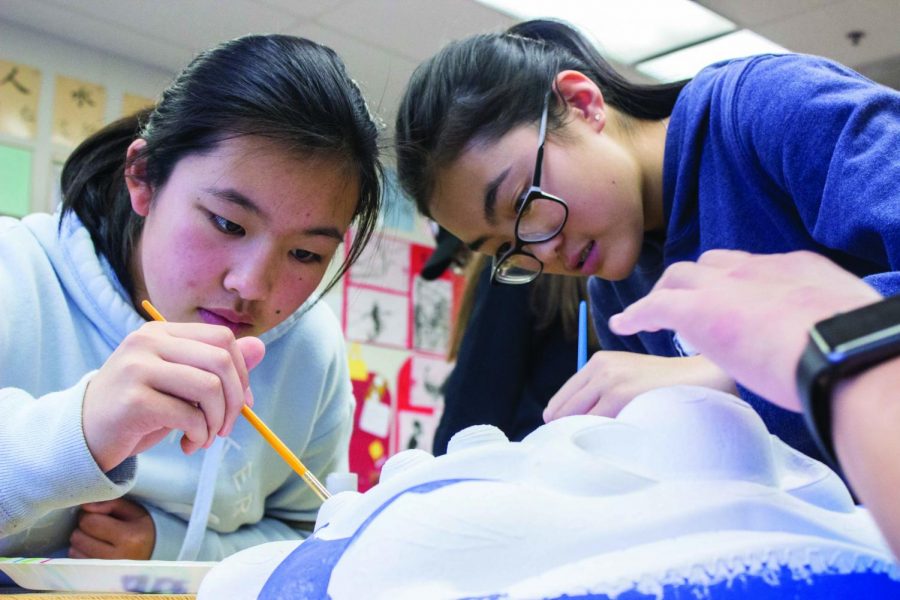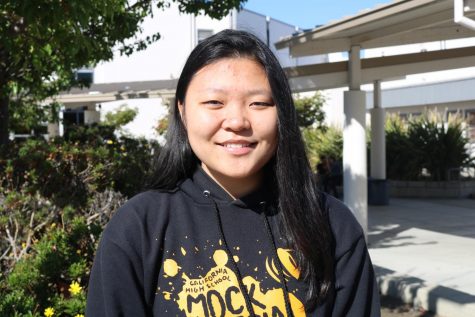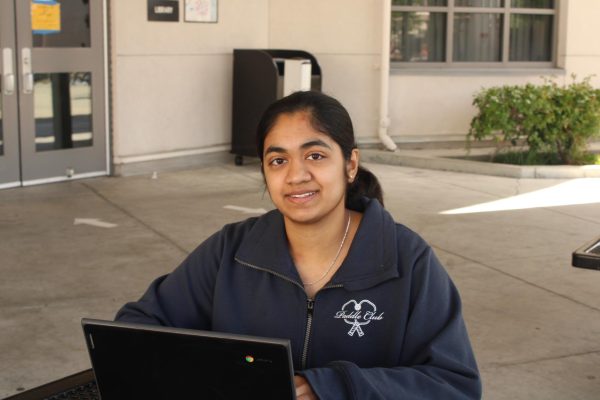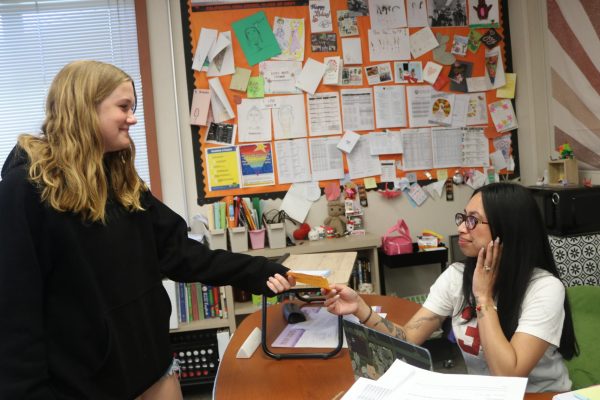Cal welcomes the Year of the Dog
For many people, New Years has already passed. But for those who celebrate Chinese New Year, the party has just begun.
The holiday, also referred to the Lunar New Year, is celebrated for 15 days in January or February. This year, the Year of the Dog begins on Feb. 16 and culminates with the Lantern Festival on March 2.
The New Year component of the holiday refers to a calendar based on the cycles of the moon.
Although the holiday originated from Asia, its festivities have spread across the globe. For example, San Francisco is planning many events in Chinatown, including its annual grand parade on Feb. 24.
“Chinese New Year is great in Wang laoshi’s (teacher’s) class,” junior Michael Byrne said of his Chinese III teacher Wen-fang Wang. “It is nice to bring a little piece of China to our class.”
Since beginning at Cal 11 years ago, Wang has incorporated the holiday into her lectures and classroom activities. She believes it is important for students to learn the culture as much as the language.
“[Chinese New Year] is a major holiday, the most important in China,” said Wang. “The curriculum [of the Chinese classes] is not just designed to learn the language, but also culture.”
In the past, the classes have eaten various Chinese dishes such as dumplings and hot pot. They have also put on a showcase for the school with dragon head dancing. But Wang says that she will not have it again this year.
“This year I have a different approach,” stated Wang.
Instead of the usual presentations in the school quad, she has prepared different activities to suit the different levels of Chinese classes.
The Chinese I class will be introduced to the holiday and will try their hands at Chinese calligraphy.
Wang explains that decorating the house with red color paper displaying themes of “prosperity” and “good fortune” is a Chinese tradition.
Chinese II will be having a shuttlecock kicking contest, with their own handmade shuttlecocks. The traditional game is almost 1,000 years old. In the centuries since, many around the globe have enjoyed the simple, yet entertaining game.
Chinese III will learn a lion dance, and will have an opportunity to create their own lion heads. The dance mimics the movements of a lion and is believed to bring good luck and fortune.
The biggest activity is reserved for the Honors Chinese IV and AP Chinese class. They will be able to explore San Francisco’s Chinatown on Feb. 16.
While most field trip itineraries are usually planned by teachers, Wang said she is giving students the chance to design their own. It will also allow them to practice their Chinese.
“They’re going to design their own routes,” said Wang.
“They are getting to practice [Chinese] in real life situations.”
In addition, the Honors and AP students will undertake a research project about special landmarks. Wang will enlist the librarians’ help to make sure that students are learning research methods as well.
Wang’s view of learning is broad. She teaches the language Chinese and the culture, but also wants to teach lasting lessons.
“I hope the students learn to appreciate the Chinese culture, and broaden their mind to different cultures,” Wang stated.
Wang’s unique approach to classes seems to have taught students well. When one student was interviewed for this story, she immediately said Happy New Year in Chinese.
“Xin nian kuai le!” said junior and Chinese IV student Maha Bose.
But for some Cal students, celebrations aren’t limited to the campus.
They will celebrate with family in their homes. Some of their activities are similar to the ones Wang is doing with her students.
“We join together and eat hot pot and rice cakes,” junior Joyce Lei said. “We have red envelopes.”
For many, however, living in America means they no longer celebrate the holiday. If they do, it’s usually a simplified version of the big festival in Asia.
“I don’t celebrate it here,” said senior May Zhu. “I only celebrate it in China. I eat dumplings, though.”
Lei agrees.
“It’s been a long time since I have had a [full] New Years celebration,” stated Lei.
Regardless of whether one celebrates Chinese New Year, it is finally the time to greet the Year of the Dog.










